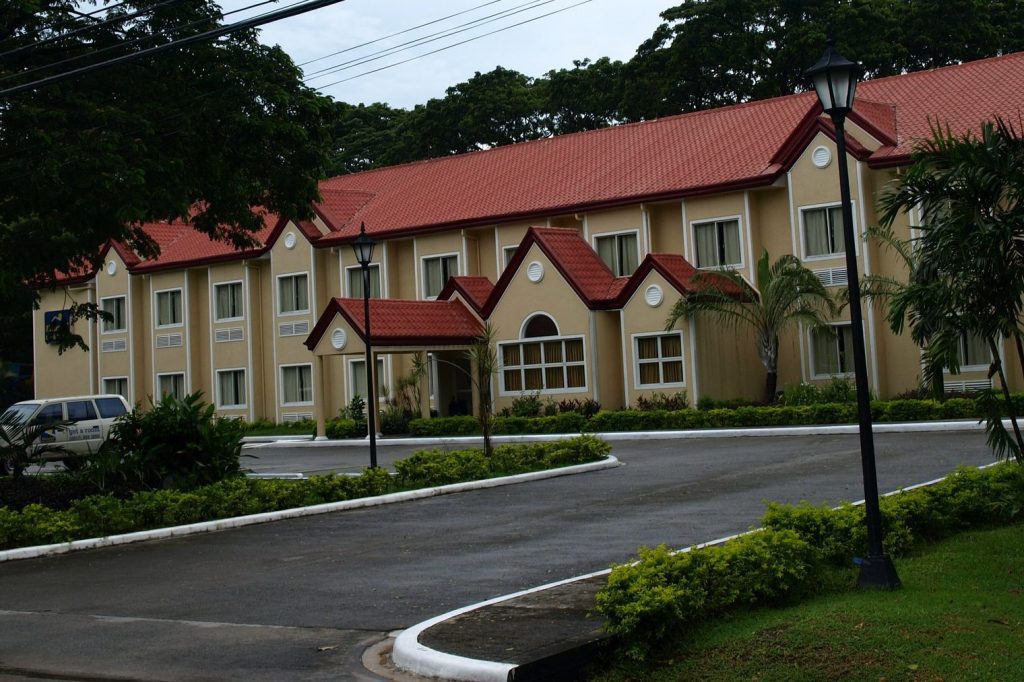Wyndham Is Expanding Overseas With Biggest Gains in Southeast Asia

Skift Take
While Wyndham Hotels and Resorts has emphasized in recent quarters the success of its La Quinta acquisition, executives on Tuesday highlighted its often-overlooked international expansion, particularly in Southeast Asia.
Systemwide at Wyndham, the number of rooms grew 3 percent year-over-year, executives said during a third quarter earnings call. Internationally, the number increased by 6 percent. Growth was slower domestically at 1 percent.
"Internationally we opened over 9,000 rooms, 20 percent more than we did last year," said CEO Geoffrey Ballotti.
The company’s development pipeline is also robust. It grew by 7 percent year-over-year to 190,000 rooms, which Ballotti called a record.
The company’s fastest growing region is Southeast Asia. China now has 11 Wyndham brands, including the first Microtel by Wyndham. That 192-room hotel opened in Guiyang earlier this month and is the first of three properties scheduled to open in the country this year.
South America has also become a lucrative market for Wyndham, with a 7 percent increase in rooms. That includes the first Trademark Collection by Wyndham in Mexico, the Acanto Hotel Playa del Carmen.
Expansion plans are also in the works in Europe, with Denmark getting two Dolce by Wyndham properties, which tend to be meetings-focused.
"I think they can do well and are doing well now, at least as evidenced by their growth with international franchise contracts," said Patrick Scholes, an analyst at SunTrust Robinson Humphrey.
In releasing its third quarter earnings on Tuesday, Wyndham acknowledged a softening in its revenue per available room, RevPAR. In the U.S., it declined 1 percent year-over-year. Internationally, it dropped the same percent in constant currency.
Wyndham’s net income also took a hit, dropping to $45 million, a 22 percent decrease over the same quarter last year. But adjusted net income was $106 million, a 25 percent increase over the prior year’s quarter.
La Quinta, in particular, had a soft quarter with a 4 percent RevPAR decline, said Ballotti. RevPAR is a key industry measurement of performance.
Still, he told investors this morning that he wasn’t too worried about it.
“The remainder is reflective of the industry-wide softness we saw in the third quarter of newer prototypes and recently renovated hotels significantly outperforming older and exterior corridor properties, especially those in the oil and gas and hurricane recovery market,” he said.
He blamed the results on the fact that many of La Quinta’s 900 hotels are in areas that were hit by Hurricane Dorian last Labor Day. The chain also has a large presence in states such as Texas, Oklahoma and Louisiana that have more volatile economies because they are highly reliant on oil.
Wyndham had a major transformation last year when it bought La Quinta Holdings’ mid-scale hotels at the same time it was spinning off from parent company Wyndham Worldwide.
For a while, the bold moves, which were completed last summer, helped lift the hotel franchising company’s RevPAR.
Scholes said he too does not know how significant the addition of La Quinta was.
“It’s difficult to tell how much of an impact La Quinta had in the most recent quarter,” he said.
Executives also pointed to other growing brands, such as Trademark Collection — a grouping of independent hotels—and Dolce by Wyndham, which are more upscale chains. Wyndham has historically been stronger in the economy, mid-scale and extended stay markets with brands such as Days Inn, Super 8, and Ramada.
Wyndham has spent the past few years creating new prototypes to refresh many of those brands. The new designs are more modern and fresh. Ballotti said he thinks that could work in the company’s favor as the economy becomes more uncertain.
“During slowdowns, I think there’s a great interest from developers in our brands but also from consumers in our brands,” he said. “As times get tougher, consumers trend down into the leisure markets we are in.”
The company also returned $100 million to shareholders through share repurchases and dividends.




